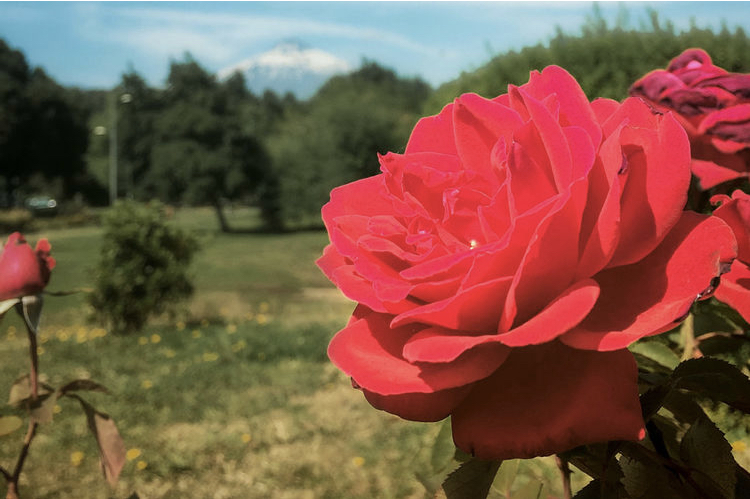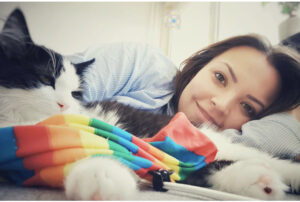I am sitting in my apartment’s balcony.
It’s sunny, but a bit chilly – I’d guess, 12°C? There is a beauty in the view I have from my home towards the city. I’ve never lived in a place where I could see the horizon. Cut by trees, small buildings, parking lots, flags, and a church tower in the middle of it. It feels good to be here. And by here, I mean in space, time and mind.
I went through a tough couple of days that are now behind me. I had what later I’d know as a Residual Burnout. It happens when you are recovering from a burnout and re-encounter the same triggers from when you fell to it. You may feel like you are burning all out again, but it also does not seem as heavy as a full-blown one.
This happens because our bodies recognise that what caused our original burnout is happening again. To protect us, it puts us in a sort of quarantine. It is easier to come out of the residual than the full burnout, for sure – especially if you are already in treatment and addressing the causes.
The important thing, though, is that Residual Burnout comes to rub on our faces something we haven’t quite learned yet.
People who have experienced burnout, and I say that from my experience, have their bodies as their teachers. I find it difficult to recognise my feelings and to dive into what is going on deep within me. I am now learning this. My body knows, and it helps me learn the lessons I must learn by shutting itself down, or by entering in a strike until I get an inch closer to an answer.
As soon as I reflected on what events might have a connection to this (thanks to therapy and meditation), I could put my finger on it. Almost immediately, I realised what I needed to do, and by the next day, my body went back to normal.
What this episode teaches me and, I hope, can teach others, is: there is no such thing as an exit door we lock behind us from this. At least, not until we actually learn the lesson.
Once I realised my residual burnout could have been avoided, I instantly felt guilty. How could I fall into this again? How did I not realise it before? Why do I have to go through pain to learn it?
Although I understand these are valid reflections, the guilt behind it is of no use. Being judgemental about our recovery does not make it any better. What does is to be forgiving. To understand we can’t judge our actions from the past with the knowledge we hold in the present. Learn the lesson, but don’t go too hard on ourselves.
Forgiveness is a crucial part of a burnout recovery process. It might be the most difficult one because, as we go further, we understand how different things would have turned out if we acted differently. Deep down, we know the episodes that could have been avoided, and that can eat us inside.
But don’t let it. Instead, acknowledge that you were doing the best you could with the resources you had.
The truth about recovering from a burnout, or by any process that involves our mind and behaviour, is that it is not a linear process. I wish I could say that if you do A and B and C and D, boom!, you’re cured. That’s not how it happens, though. The trajectory looks more like a winding road, with sunny days and terrible storms. We need to keep going, though, as forward is the only direction possible.
There is no such thing as a magic wand that will send our troubles or symptoms away. There are lessons to be learned, and there’s us getting better and stronger at them each time.
You’ll know you’re on the right path not because you are not falling. But because you are rising back up faster and better than before.










